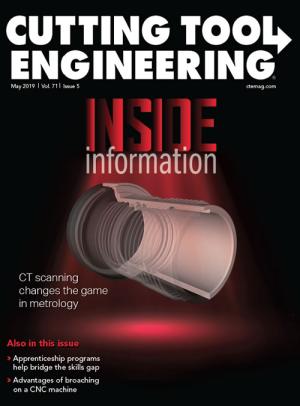The channels of electronic workplace communication are many nowadays, whether phone calls, voicemails, texts or ever-reliable emails. Monitoring all these technologies can be overwhelming but is a business requirement nonetheless. Sometimes it’s easier to pick up the phone and call people. But in the business world, many dealings require a trail in writing, necessitating email communication. We even electronically sign formal documents or contracts via email, making this one of the most official forms of communication. As such, this makes reading and absorbing the entire document important.
We’re all inundated by messages in our inboxes. You likely use software that specifically screens emails, occasionally routing them to another folder or two. Some are legit, and some are not. Even so, it seems that lots of people aren’t reading messages. I’ve had several experiences of this exact situation.
We were working with a machine tool supplier to clear up a past-due invoice. I requested an account statement from the company to get the bill paid and ensure that our records matched the vendor’s. All this communication was important and required an email chain for confirmation. The entire day progressed with no statement or response. Then, many hours later, the supplier followed up again and requested the payment status with no mention of the needed statement.
It was frustrating because I had the electronic verification that my email had been received and read, but the company still didn’t address the issue at hand. Bottom line: The vendor didn’t read my email, even though I had copied three key managers to resolve the matter. This situation created another delay and wasted more time dealing with the same issue I had tried to resolve. Once I pointed out the failure to read my written, official request, the supplier apologized and provided what I had already asked for.
Unfortunately, other vendors also regularly contact us about orders or payments, requesting updates or information that’s already been provided.
Customers also suffer from this failure to read written correspondence. We often clarify, communicate and correspond about important project details via email. But many people still contact us requesting information that had already been provided. If people read our message, it must have been only the first sentence or two, so they failed to see important information that would’ve prevented the subsequent crisis that needed fixing.
When customers or vendors have important information in a written email chain, with return receipts verifying the matter, they can’t blame our company for their failure to actually read it and act accordingly. This has become a frequent occurrence—and a disruptive one.
The cause of this phenomenon at our company is a hot topic that elicits a lot of discussion, but a pattern of incidents traces back to people not reading written information that was given to them. It’s common to be in a rush, but that can also create problematic issues later.
No one likes to sort through an inbox full of junk, but emails and electronic documents will continue to be a critical business process that perhaps binds you to requirements and standards. Don’t forget to read all of it.


